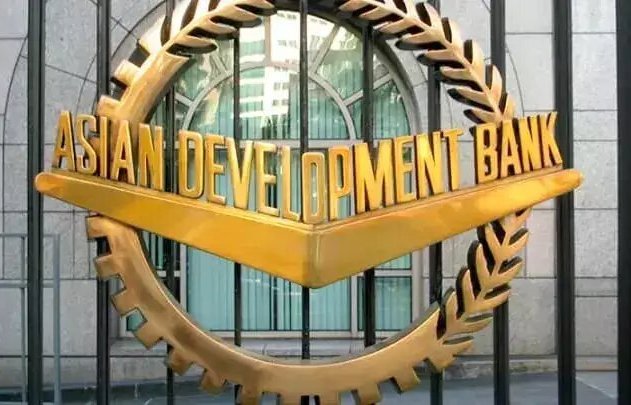
On May 30, 2024, the Asian Development Bank (ADB) announced a significant commitment of $2.6 billion in sovereign lending to India. This funding is aimed at supporting a broad range of development projects designed to boost economic growth, improve infrastructure, and enhance resilience across various sectors.
This substantial financial support underscores ADB's ongoing partnership with India, focusing on sustainable development and structural transformation.
Key Areas of Focus
Urban Development and Infrastructure
A significant portion of the ADB's funding will be allocated to urban development projects. These initiatives aim to improve infrastructure, enhance living conditions, and promote sustainable urban growth. Well-planned cities are essential for India’s economic progress, and these projects will address critical urban challenges.
- Transportation: The funding will support the construction and upgrading of roads, railways, and metro systems to improve connectivity and reduce travel times.
- Water Supply and Sanitation: Investments will be made to improve water supply systems, sewage treatment plants, and waste management infrastructure to enhance the quality of life in urban areas.
- Smart Cities: The development of smart city initiatives will be a key focus, integrating technology to improve urban services and infrastructure.
Industrial Corridor Development
The development of industrial corridors is a high priority for the Indian government, aiming to create hubs of economic activity, foster innovation, and generate employment. ADB’s financial support will be instrumental in advancing these projects.
- Economic Zones: Funding will facilitate the establishment of industrial zones that attract investments and promote manufacturing and exports.
- Job Creation: By fostering industrial growth, these projects will create numerous job opportunities and contribute to economic development.
Power Sector Reforms
ADB’s investment in the power sector is crucial for India’s energy transition. The focus will be on supporting renewable energy adoption, modernizing the grid, and improving energy efficiency.
- Renewable Energy: Investments in solar, wind, and other renewable energy projects will help India achieve its renewable energy targets.
- Grid Modernization: Upgrading the power grid will enhance reliability and efficiency, reducing losses and improving energy access.
- Energy Efficiency: Programs to improve energy efficiency in industries and households will be supported, contributing to sustainability.
Climate Resilience
India faces significant climate-related challenges, including extreme weather events and rising sea levels. ADB’s commitment to climate resilience projects will help build infrastructure that can withstand these challenges, ensuring sustainable development.
- Disaster Management: Funding will support the development of disaster management systems and infrastructure to mitigate the impact of natural disasters.
- Climate-Resilient Infrastructure: Projects will focus on building infrastructure that is resilient to climate impacts, such as flood protection systems and resilient housing.
Horticulture and Connectivity
ADB’s funding extends to horticulture projects, emphasizing sustainable agricultural practices and food security. Additionally, investments in connectivity will enhance transportation networks, facilitating economic growth and regional integration.
- Sustainable Agriculture: Projects will promote sustainable farming practices, improve crop yields, and ensure food security.
- Transportation Networks: Enhancing road, rail, and port connectivity will support trade and economic integration across regions.
Private Sector Projects
In addition to sovereign lending, ADB has allocated over $1 billion for private sector projects. These investments aim to stimulate entrepreneurship, innovation, and job creation.
- Entrepreneurship: Supporting startups and small businesses will drive innovation and economic diversification.
- Private Investments: Encouraging private sector investments will help in scaling up successful business models and creating jobs.
Technical Assistance and Grants
ADB’s commitment goes beyond financial support. The bank has extended $23.53 million in technical assistance and $4.1 million in grants under the sovereign portfolio. These resources will enhance project implementation and capacity building.
- Capacity Building: Technical assistance will help build the capacity of local institutions to implement and manage development projects effectively.
- Project Implementation: Grants will support the smooth implementation of projects, ensuring that they deliver the intended benefits.
ADB’s Vision for India
Mio Oka, ADB’s country director for India, emphasized the bank’s commitment to India’s transformation. “We will continue to focus on projects and programs that accelerate India’s structural transformation, create jobs, address infrastructure gaps, promote green growth, and foster social and economic inclusiveness while deploying smart technologies and innovations,” said Oka.
Historical Context
India, as a founding member of ADB, has maintained a strong partnership with the bank. ADB’s current sovereign portfolio in India comprises 67 loans totaling $14.15 billion. Including both sovereign and non-sovereign loans and grants, ADB’s cumulative support to India amounts to $43.45 billion. This long-standing relationship reflects the mutual commitment to development and progress.
Project Selection and Monitoring
Project Selection
The selection of projects to be funded will be based on their alignment with India’s development priorities and ADB’s strategic objectives. Projects will be thoroughly assessed to ensure they are feasible, sustainable, and capable of delivering the intended benefits.
- Feasibility Studies: Detailed feasibility studies will be conducted to evaluate the potential impact and sustainability of each project.
- Alignment with Priorities: Projects that align with India’s national development plans and ADB’s strategic focus will be prioritized.
Monitoring and Evaluation
ADB will work closely with Indian authorities to monitor the progress of funded projects. Regular evaluations will be conducted to assess the impact of these projects and ensure that the funds are being used effectively.
- Progress Reports: Regular reports on the status of projects, including milestones achieved and challenges faced.
- Impact Assessments: Evaluations to measure the social, economic, and environmental impact of the projects.
- Stakeholder Engagement: Involving local communities and stakeholders in the monitoring process to ensure transparency and accountability.
Challenges and Mitigation Strategies
Potential Challenges
Despite the significant commitment, there are potential challenges that could affect the implementation of the projects. These include:
- Land Acquisition: Delays in acquiring land for infrastructure projects can hinder progress.
- Regulatory Approvals: Securing necessary approvals from various regulatory bodies can be time-consuming.
- Environmental Concerns: Ensuring that the projects do not adversely affect the environment.
Mitigation Strategies
To address these challenges, ADB and Indian authorities will implement several mitigation strategies:
- Stakeholder Engagement: Engaging with local communities and stakeholders early in the project planning process to address concerns and secure support.
- Streamlining Approvals: Working with regulatory bodies to streamline approval processes and reduce delays.
- Environmental Safeguards: Implementing robust environmental safeguards to minimize the impact of projects on the environment.
ADB’s commitment of $2.6 billion in sovereign lending to India marks a significant milestone in the partnership between the two entities. This funding will support a wide range of projects aimed at enhancing infrastructure, improving social welfare, and promoting environmental sustainability.
By addressing key challenges and implementing effective monitoring mechanisms, ADB and India can ensure the successful implementation of these projects, contributing to India's long-term development goals and improving the quality of life for its citizens.

Hi, I’m Durgesh Nayak, and I hold a Master’s degree in Commerce with over five years of experience in the banking sector. I am certified with JAIIB and CAIIB, which has given me a solid foundation in financial knowledge. For the past four years, I’ve been sharing my passion for finance through writing money and finance blogs.
My goal is to make complex financial topics accessible and actionable, helping you improve your personal finance, investment strategies, and overall financial planning.
